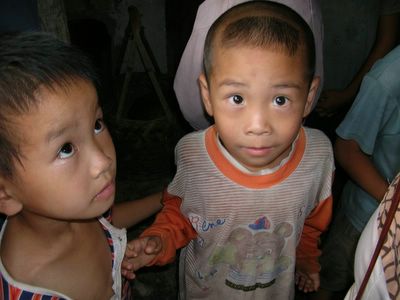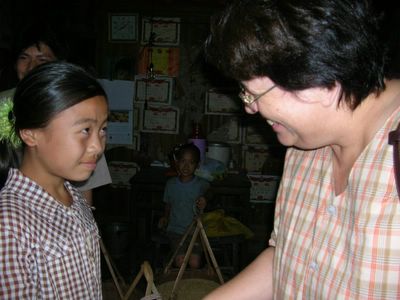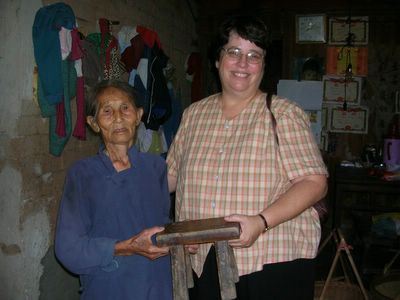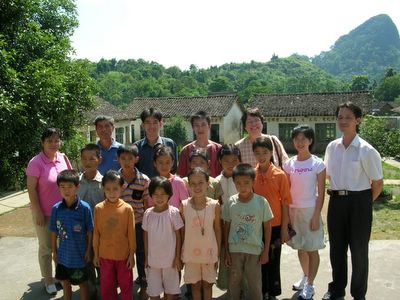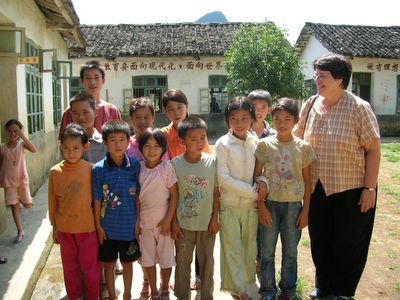
Orphaned Chinese children like these need tuition help. These sisters depend on their grandmother for their support. I have committed myself to help 155 of these children for one year with tuition. As I looked through the name lists, I chose mostly primary school children and some middle school children, who are taught by my teaching assistants, who were middle school teachers.
I opened an account in the Bank of China and put the funds in the care of Malan Cai, who was my Chinese teacher when she was a visiting scholar here. Two other of my Chinese friends who were students at our local college, Xuqi Wen and Yi Ying Li (Walson), also agreed to help me help the children in the countryside. Together we talked about forming a charity to help the children, but we found that establishing a charity in cooperation with a foreigner in China is very difficult.


